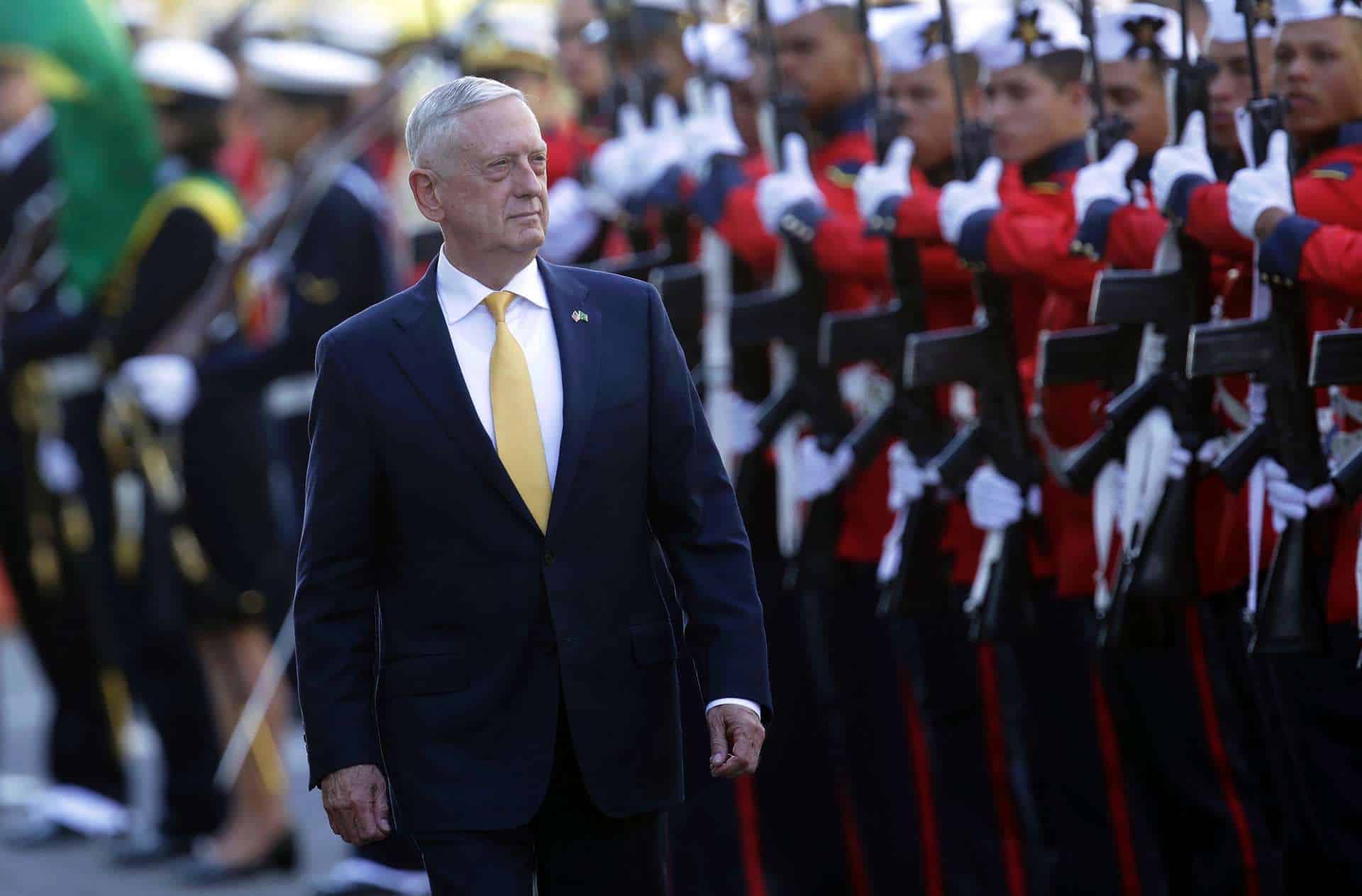U.S. Defense Secretary Jim Mattis praised Brazil’s clout and urged closer strategic ties Tuesday in what appeared to be part of a concerted push back against growing Chinese influence in Latin America.
Mattis, who is starting a tour of the region, told military officers at Rio’s war college that Brazil and the United States had interests built on shared geography, democracy and battlefield history dating to World War II.
Mattis said the United States wants a “stronger relationship,” with a focus on using the Brazil’s Alcantara space center, whose location near the equator makes launches more effective.
China is developing its space infrastructure in Latin America, with a base in southern Argentina’s Patagonia region. It has also pushed deep into the continent’s economies as an investor and major client for agricultural, mineral and other commodities.
Mattis said that U.S. interest in Alcantara was “not because it lies along the equator, a happy accident of geography, but because we want to work with Brazilians — our hemispheric neighbors whose values we share politically, as well as your technological orientation.”
“Others cannot credibly say the same,” he said in what appeared to be a pointed reference to China.
China’s regional rise comes after long decades of deep, sometimes controversial US influence in Latin America. Mattis made clear that Washington is in no mood to give way.
“We see Latin America as our neighbor. Some people say we don’t pay much attention to it. That is certainly not the case in the military,” Mattis said in separate comments issued by the Pentagon’s press office.
He told officers in Rio that following an April discussion with Brazil’s defense minister, Joaquim Silva e Luna, he ordered staff “to transform our defense relationship with Brazil, to reenergize it.”
Mattis singled out Brazil as a regional leader, praising the country’s record of multiple peacekeeping missions and its stand against the deeply anti-US government in chaotic Venezuela.
Mattis described the Venezuelan leadership as a “power-hungry, oppressive regime that forces refugees into Brazil and into Colombia, and elsewhere.”
The Brazilian defense minister said Monday after talks with Mattis that his US counterpart believed “the solution [in Venezuela] should be led by Brazil.”
In an interview with Brazil’s O Globo newspaper earlier this week, Mattis again emphasized what he said were the shared democratic values in the U.S.-Latin American partnerships, specifically comparing this to the nature of the new regional rivals China and Russia.










